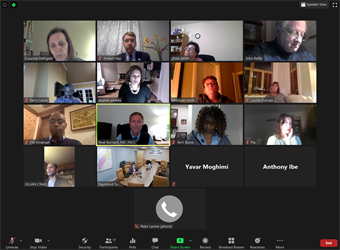Health Equity
Medicaid Enrollment Touches 39% of the Residents of The District of Columbia; DC’s 70/30 FMAP is Vital for the Maintenance of Health & Human Services
A reduction in the District’s FMAP would not lead to long-term government savings and would have a ripple effect throughout the entire health system in the DMV, crippling access to care for not only Medicaid beneficiaries but also all those who live, work, and visit the District of Columbia, including members of Congress and their staffs.
.png?sfvrsn=9ac2d21b_0)
Why does DC receive an Enhanced FMAP Rate?
The DC FMAP rate of 70% established by the Revitalization Act resulted from bipartisan analysis, discussion, and negotiation by Congressional leadership aiming to balance fairness with the District’s restricted ability to generate revenue. Congress recognized that the District of Columbia faces unique financial challenges due to its non-state status and the significant amount of federally-owned land within its boundaries. The District is unable to tax non-residents’ earnings, so these workers pay no taxes to support the infrastructure and services, such as roads, public safety and emergency services that they benefit from in the District. The District is also unable to tax up to 40% of the real property within its borders due to statutory restrictions.
Why are we concerned about DC's FMAP now?
Members of Congress have proposed reducing the DC FMAP to the statutory minimum for all other states, which is currently 50% (but could be reduced even more). Such a change would impact every physician and every practice, regardless of type, location, and payers contracted. Even practices who take no insurance will not be able to send patients for specialist care, hospital admissions, or other types of care.
What can MSDC members do?
- If you know a member of Congress or staffer, reach out to them and share how DC cuts will hurt your patients.
- Share your relationships and outreach with hay@msdc.org so we can help coordinate advocacy efforts.
- Email hay@msdc.org if you would like to be paired with a physician member of Congress office and trained by MSDC staff on how to reach out.
Resources
- DC FMAP cut fact sheet
- California Medical Association fact sheet on Medicaid cuts
- MSDC and healthcare association letter to Congress arguing against DC FMAP changes.
- MSDC original story on Medicaid changes.
News, Statements, and Testimony on Health Equity Issues
MSDC Board Approves New Business Plans for Society

At its Monday meeting, the MSDC Board of Directors made some major decisions that will advance the Society's mission to make the District the best place to practice medicine.
The Board met via Zoom for the third consecutive meeting, due to the District's Phase Two restrictions. Joining the Board meeting with Dr. John Reilly, longtime MSC member and member of the MSDC Physician Healthy Committee.
The Board debated a number of items tied to its strategic plan and voted on a few motions of interest:
- A motion was approved to create a new Foundation focused on physician wellness
- The 2021 budget was approved unanimously
- A set of metrics to guide the strategic plan's implementation was approved unanimously
- A clean audit from MSDC's audit firm was accepted by the Board.
In addition, the Board heard presentations on:
- DC Medicaid transition from fee-for-service to managed care, as well as behavioral health transitions
- Multiple advocacy victories over the summer including passage of the Access to Biosimilars Amendment Act, MSDC's top legislative priority
- The state of the Society's financial reserves and investments
The next MSDC Board meeting will be December 7. MSDC members in good standing may request an invitation to attend from Robert Hay via email at hay [at] msdc.org.

Leave a comment